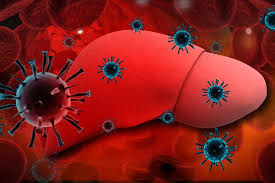Viral Hepatitis: Causes, Treatment, and Prevention
Viral hepatitis is a group of inflammatory liver diseases caused by different viruses. These viruses can damage the liver, leading to a range of symptoms and complications.
Types of Viral Hepatitis:
There are five main types of viral hepatitis:
- Hepatitis A: Transmitted through contaminated food or water.
- Hepatitis B: Transmitted through contact with infected blood or bodily fluids.
- Hepatitis C: Transmitted through contact with infected blood.
- Hepatitis D: Requires hepatitis B infection to occur.
- Hepatitis E: Transmitted through contaminated food or water.
Causes:
- Hepatitis A: Consuming contaminated food or water.
- Hepatitis B: Exposure to infected blood or bodily fluids, such as through unprotected sex or sharing needles.
- Hepatitis C: Exposure to infected blood, primarily through sharing needles or other injection equipment.
- Hepatitis D: Co-infection with hepatitis B.
- Hepatitis E: Consuming contaminated food or water.
Symptoms:
Symptoms of viral hepatitis can vary depending on the type of virus and the severity of the infection. Common symptoms include:
- Fatigue.
- Nausea and vomiting.
- Abdominal pain.
- Jaundice (yellowing of the skin and eyes).
- Dark urine.
- Light-colored stools.
- Fever.
Treatment:
Treatment for viral hepatitis depends on the type of virus and the severity of the infection. In some cases, the body can naturally fight off the virus. However, for other types of hepatitis, medical treatment may be necessary.
- Hepatitis A: Most cases of hepatitis A resolve on their own. However, supportive care may be needed to manage symptoms.
- Hepatitis B: There are antiviral medications available to treat chronic hepatitis B infection.
- Hepatitis C: There are highly effective antiviral medications available to cure hepatitis C infection.
- Hepatitis D: There is no specific treatment for hepatitis D. Treatment focuses on managing the underlying hepatitis B infection.
- Hepatitis E: Most cases of hepatitis E resolve on their own. However, supportive care may be needed to manage symptoms.
Prevention:
Vaccination is available for hepatitis A, B, and E. Avoiding contaminated food and water, practicing safe sex, and not sharing needles or other injection equipment can also help prevent viral hepatitis.
It's important to consult with a healthcare professional if you experience symptoms of viral hepatitis. Early diagnosis and treatment can help prevent serious complications.
